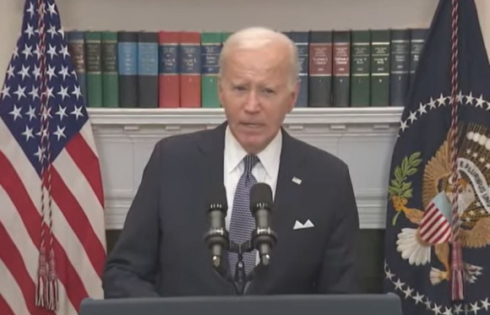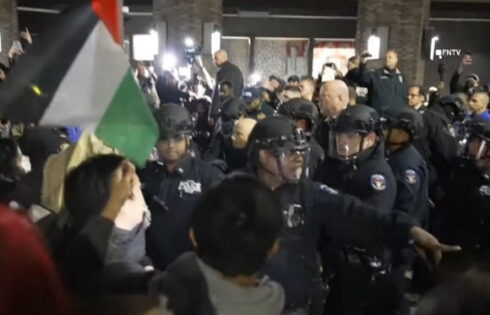
Remember the Barry University student working for James O’Keefe’s Project Veritas who got suspended for recording conversations with campus officials, in which they seem to speak approvingly of the Islamic State?
Under a settlement with the school whose terms are otherwise confidential, the student will be allowed to graduate on time, according to the Foundation for Individual Rights in Education, which had warned the Florida school it was grossly exceeding its authority to punish her.
FIRE’s Peter Bonilla explains what was so radical about Barry’s response to Laura, the student:
While other universities seem to have taken Project Veritas’s recordings in stride, Barry threw the book at Laura, charging her with “Falsification,” “Collusion,” “Disruptive Behavior,” “Violations of Law,” “Hostile Environment,” and “Threatening Behaviors.” It also placed her on interim suspension—a serious sanction best deployed only in extreme circumstances, such as when the safety of the community is at risk.
As the group said in its letter to Barry last month, the school jumped ahead of its own state legal system in judging that Laura broke the law by recording the conversations:
FIRE presumes that this charge is based on Fla. Stat. § 934.03, prohibiting the interception and disclosure of oral communications—the same statute underlying the criminal complaint filed against [Laura]. Whether particular communications fall under the ambit of this statute depends on whether they are made by a party “exhibiting an expectation of privacy under such circumstances reasonably justifying such an exception.” … This inquiry is “intensely fact-specific,”Migut v. Flynn, 131 F. App’x 262, 267 (11th Cir. 2005), and Florida courts have expressed doubts that a reasonable expectation of privacy inures in one’s place of business. …
It is fundamentally unfair to force a student to choose between mounting a thorough and complete defense to campus disciplinary charges or remaining silent for fear that any statements made in so doing could be used in a future criminal prosecution. Students who are convicted of violating the law may reasonably be punished under the conduct code. But it is unconscionable for the university to assert jurisdiction over criminal matters and place the accused student in such a manifestly unfair and untenable position.
Read the post and the letter.
Like The College Fix on Facebook / Follow us on Twitter





Please join the conversation about our stories on Facebook, Twitter, Instagram, Reddit, MeWe, Rumble, Gab, Minds and Gettr.